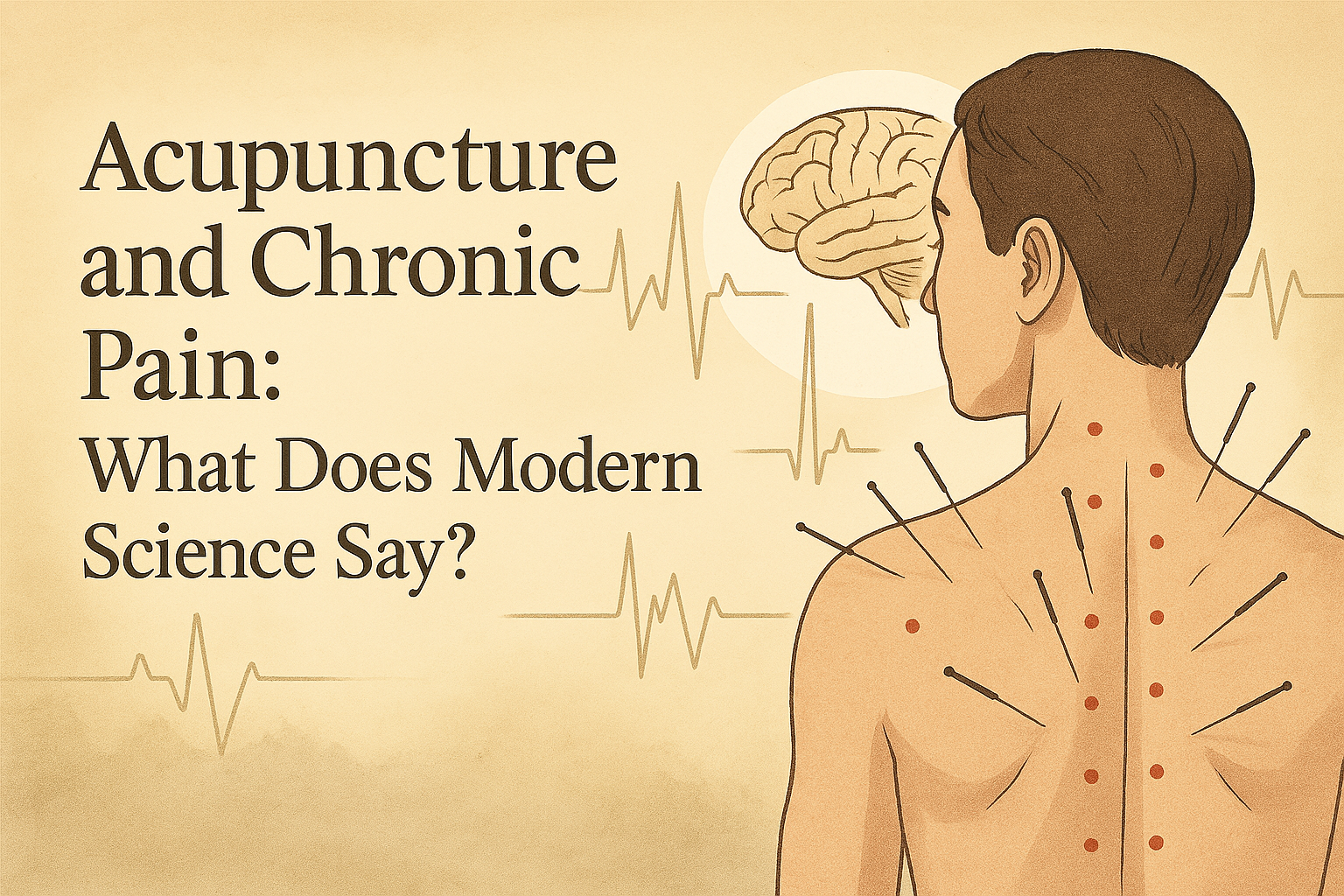Acupuncture, a core component of Traditional Chinese Medicine (TCM), has been practiced for over two millennia to treat a wide range of conditions. In modern healthcare, it has gained increasing attention for its effectiveness in managing chronic pain. But how does science interpret its benefits, and what does the evidence really say?
What Is Acupuncture?
Acupuncture involves the insertion of fine needles into specific points on the body to regulate the flow of Qi (vital energy) and restore balance. From a biomedical perspective, these points are thought to stimulate nerves, muscles, and connective tissue, promoting natural healing processes.
Scientific Understanding of Mechanisms
Researchers have proposed several mechanisms by which acupuncture may alleviate chronic pain:
- Neurotransmitter Modulation: Acupuncture may stimulate the release of endorphins, serotonin, and other pain-regulating neurochemicals.
- Central Nervous System Regulation: Imaging studies show that acupuncture can alter brain activity in regions involved in pain processing.
- Anti-inflammatory Effects: Needling may reduce inflammatory markers and improve immune regulation.
- Gate Control Theory: Stimulating nerve fibers at acupuncture points may block pain signals traveling to the brain.
Evidence from Clinical Studies
A large number of high-quality randomized controlled trials (RCTs) and systematic reviews have examined acupuncture’s effects on chronic pain. Notable findings include:
- A 2018 meta-analysis in the journal Pain reviewed data from over 20,000 patients and concluded that acupuncture is significantly more effective than both sham acupuncture and no treatment for chronic musculoskeletal pain, osteoarthritis, and migraines.
- The NIH, WHO, and NICE (UK) have all recognized acupuncture as a viable therapy for several pain conditions.
Conditions with Strong Evidence
Acupuncture is now commonly used in hospitals and integrative clinics for:
- Chronic back pain
- Neck pain
- Osteoarthritis (especially knee)
- Tension and migraine headaches
- Fibromyalgia
It is also being explored for cancer-related pain, postoperative pain, and neuropathic disorders.
Conclusion
Modern research supports acupuncture as a legitimate and effective treatment for various chronic pain conditions. While more studies are needed to fully elucidate its mechanisms, the growing body of evidence bridges traditional practice and biomedical science. Acupuncture offers a valuable, low-risk, and often cost-effective tool for pain management in both traditional and modern healthcare systems.


发表回复